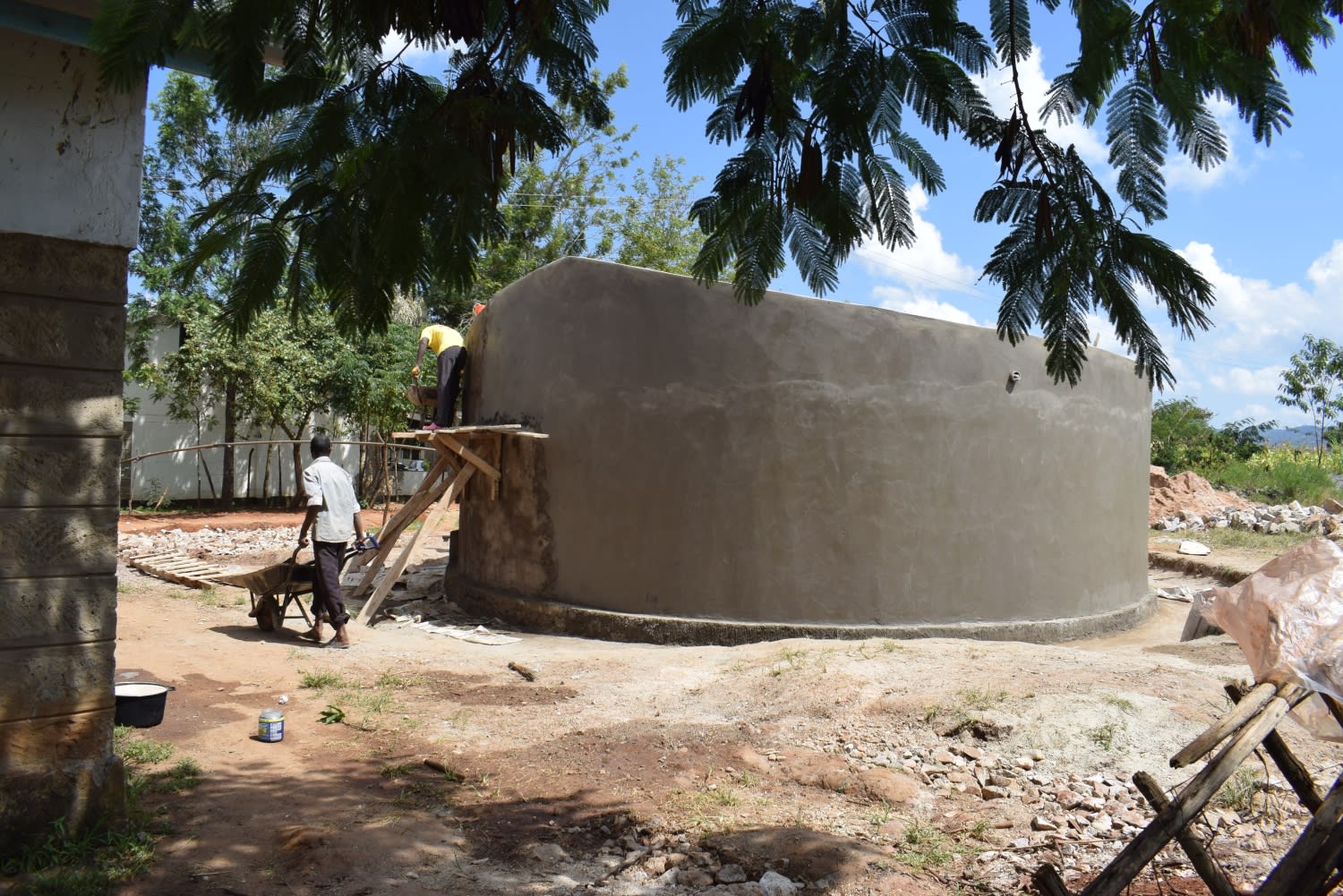Mutulani Secondary School has a student population of 250 students. The school relies on rainwater harvested into 4 10,000-liter tanks which run out very fast as the water is used for drinking, cooking, cleaning, laboratory uses, watering plants, and sanitation for the boarding students. Because the school is based in the arid and semi-arid lands of South Eastern Kenya, which is characterized by intermittent rain patterns, the water storage capacity is not enough to sustain them for the whole academic year.
To make the water last as long as possible, the school allocates a daily maximum of 1 liter of water per day for day students and 10 liters of water per day for boarding students. That is well below the United Nations daily minimum standard which states that day students need 5 liters and boarding students need 20 liters of water.
Once the water in the tanks ends, the school has to purchase water from vendors, known as boozers, and at times the water is not clean at all. It is very expensive for the school to purchase water every day. At times, the boozer companies delay the delivery of the water which severely disrupts the school program.
"Delayed water delivery has resulted in delayed school programs such as lessons starting late after lunch and ending very late in the evening because the food is not prepared on time," said Mercy, a student at the school.
"A lot of time is wasted. Understanding what is taught in class at times is not easy, especially when we have stomach upsets because of the drinking water."
The funds spent purchasing water could be channeled to other projects at the school. Academic performances are affected because the students are often disrupted either by inadequate water, which delays the flow of their lessons, or by drinking the dirty water supplied to the school, which leads to sicknesses and absenteeism.
The boarders need water for personal hygiene which has proved to be difficult for both the school and the students because the rationing has been too intense.
"Hygiene and sanitation are not well maintained. As a result of the water shortage, the classrooms, offices, and latrines are not cleaned daily but we try our best to administer cleanliness," said Deputy Principal Damaris Mwende.
Mutulani Secondary School is situated in a rural, remote area of Makueni County and is a co-ed day & boarding secondary school. The area is surrounded by community farms and thick bushes, making the environment lush and green.
The school was established in 1988 by the community members and the parents of the neighboring primary school as they needed a school to enroll their students in after primary education. It began as a day school only, but in 2012 it was upgraded to matriculate both day and boarding students. It has grown over time through the support of both the parents and the government.
"Development in the school has greatly been hindered because most of our finances go to buying water. With an adequate water supply, we believe that the school will grow and its academic performance will improve," said Mwende.
Rain Tank
We will build a 104,000-liter rain tank for this school, making the others look tiny in comparison. Because of how rarely it rains in Southeastern Kenya, this tank's large volume is designed to store as much water as possible during the seasonal rains, making more water available through the dry months. This water will benefit the students, teachers, and supplementary staff.
Parents will mobilize the materials needed for construction, including sand, stones, and water. They will also lend their strength and time to help with the construction. We will complement their materials with a skilled artisan to lead the project in addition to providing the tools, lumber, metal, cement, and gutter system.
As soon as the tank has time to cure, it can begin collecting rainwater for the school's use.
Training
We will train students and staff on sanitation, hygiene, and other topics for 1 day. Those in attendance will form a school health club that will promote good hygiene and sanitation practices both at school and at home. They will learn all of the steps to proper handwashing, how to treat water, and how to keep their environment clean. The school will also be taught how to best oversee and maintain their new rain tank and handwashing stations.
Handwashing Stations
3 handwashing stations will be installed upon the project’s completion and before training. These are 1,000-liter plastic tanks fitted with 4 taps each. The student health club and school management will be responsible for making sure the tanks are filled with water and that a cleaning agent such as soap or ash is always available.

 Rainwater Catchment
Rainwater Catchment
 Rehabilitation Project
Rehabilitation Project
































